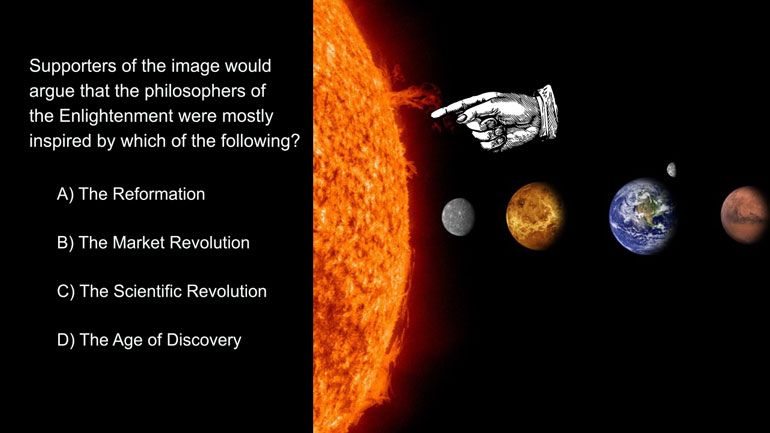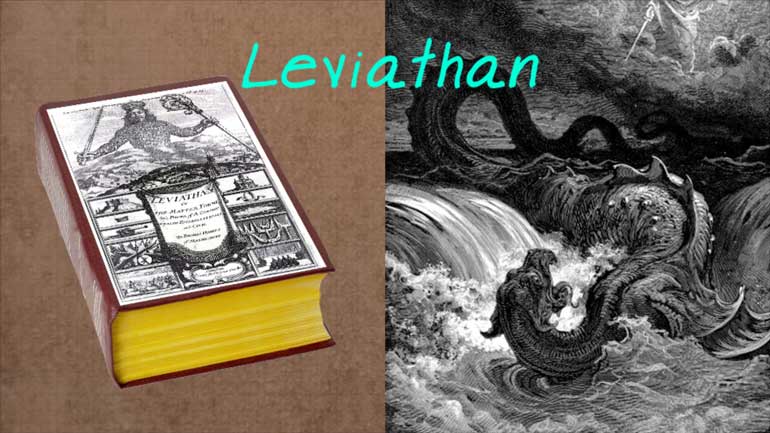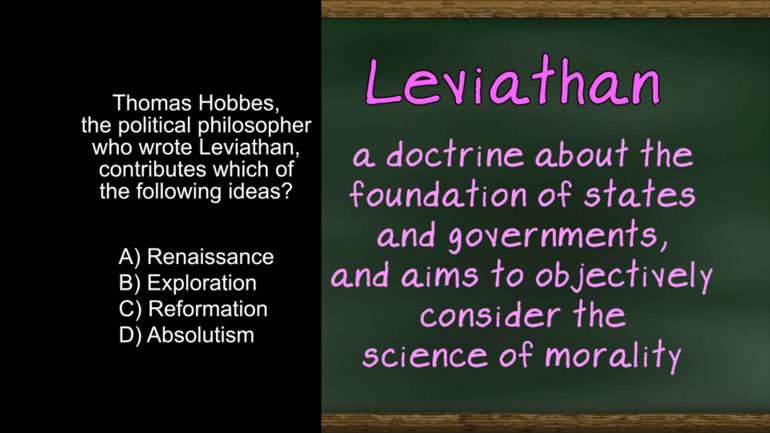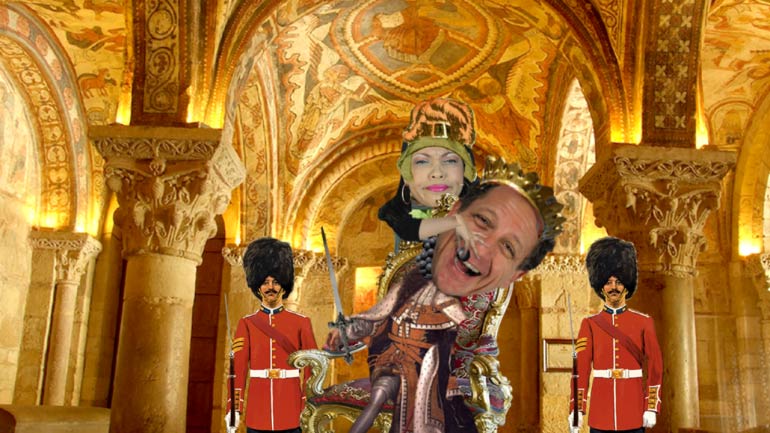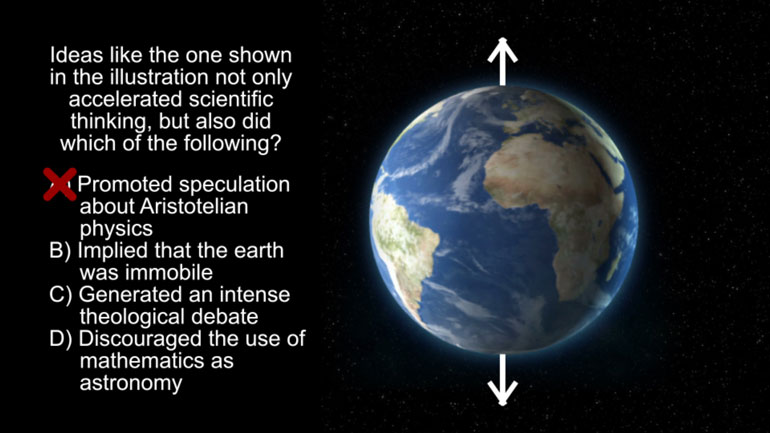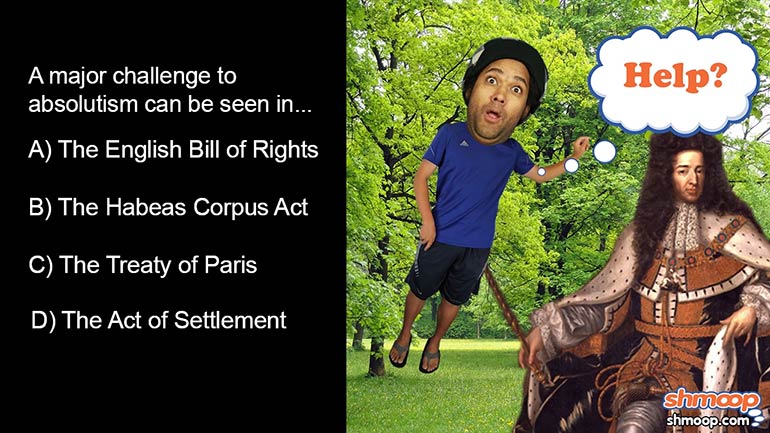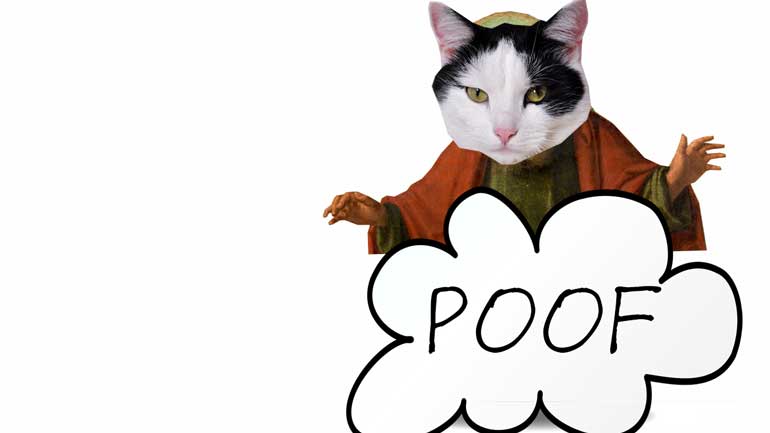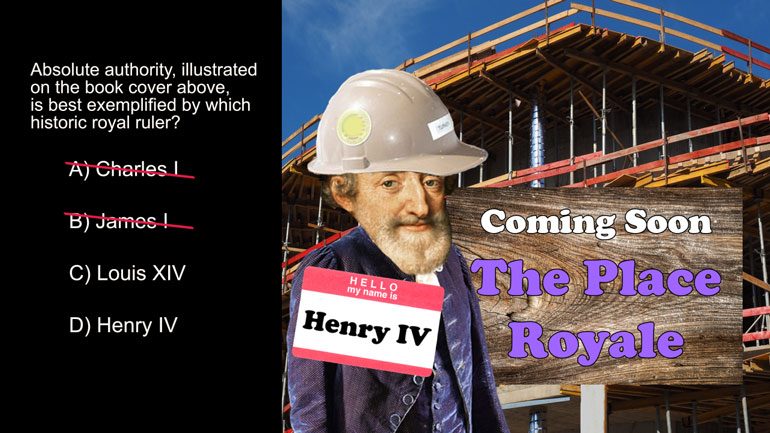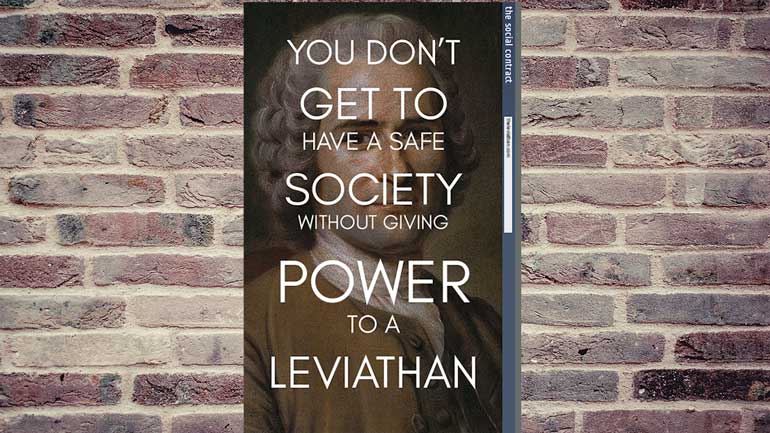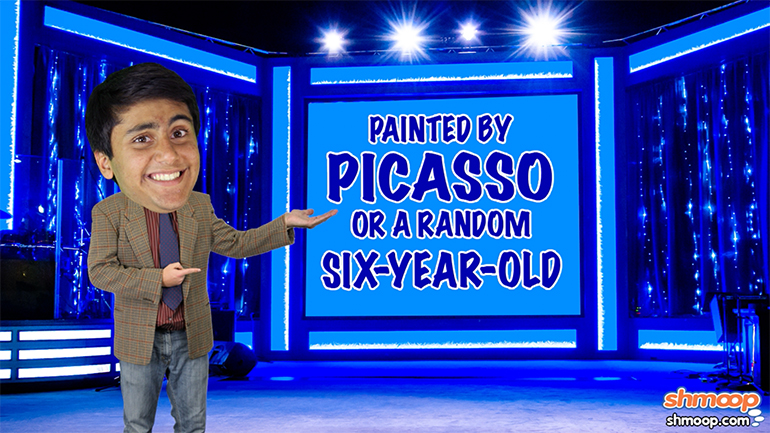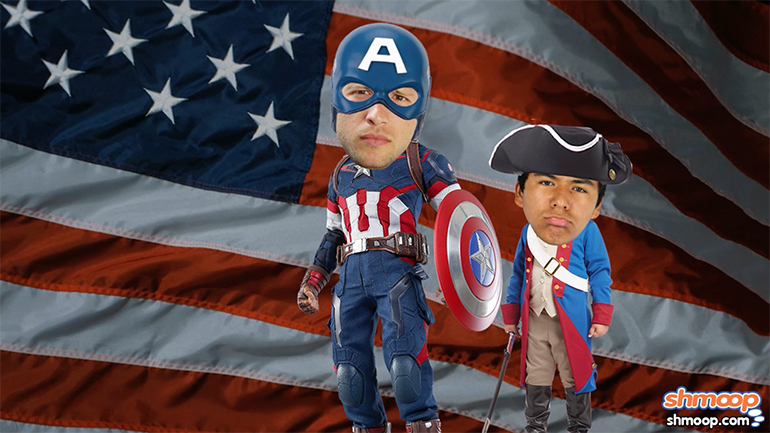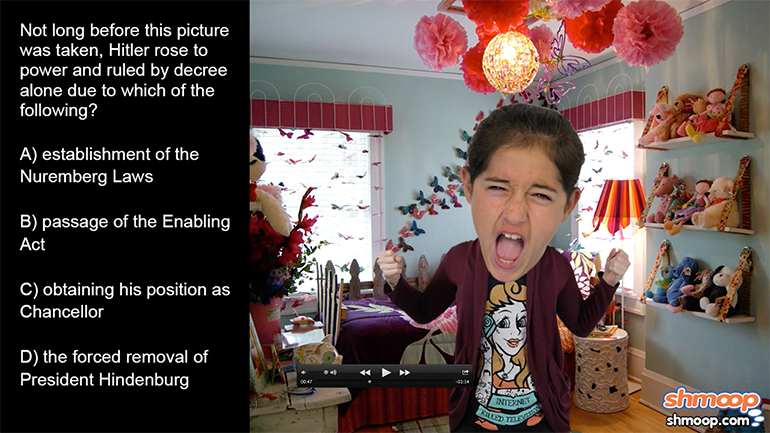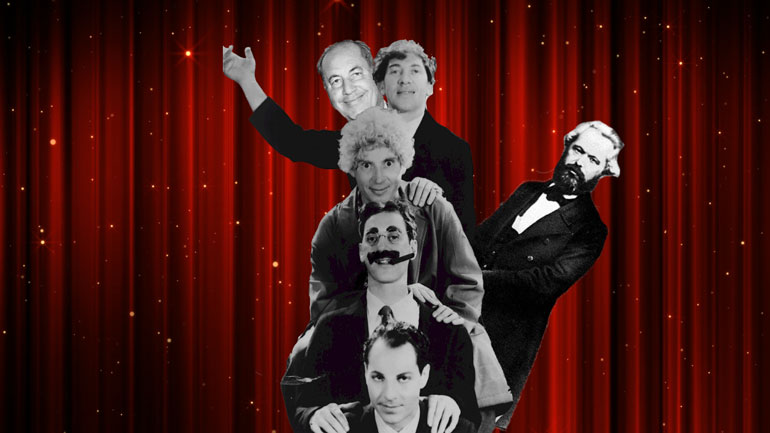ShmoopTube
Where Monty Python meets your 10th grade teacher.
Search Thousands of Shmoop Videos
Period 2: 1648-1815 Videos 9 videos
AP European History 2.3 Period 2: 1648-1815. Supporters of this image would argue that philosophers of the Enlightenment were mostly inspired by wh...
AP European History 1.2 Period 2: 1648-1815. Which best describes the state of nature as highlighted in Leviathan by Thomas Hobbes?
AP European History 1.1 Period 2: 1648-1815. Thomas Hobbes, the political philosopher who wrote Leviathan, contributes which of the following ideas?
AP European History 1.2 Period 2: 1648-1815 51 Views
Share It!
Description:
AP European History 1.2 Period 2: 1648-1815. Which best describes the state of nature as highlighted in Leviathan by Thomas Hobbes?
Transcript
- 00:03
Here's your shmoop du jour brought to
- 00:05
you by leviathan a term that could describe Hobbes most famous book or a [Leviathan book]
- 00:09
gigantic monstrous sea creature take a look at this image right there Leviathan
- 00:14
alright here's the question which best describes the
- 00:17
state of nature as highlighted in Leviathan by Thomas Hobbes and here are your
Full Transcript
- 00:21
potential answers..... well you know how when someone sees a [Bird crossing the road]
- 00:27
person rescue a duckling from oncoming traffic give an underprivileged child a
- 00:32
new toy or donate their entire paycheck to charity they'll say faith in
- 00:37
humanity restored right well Hobbes must have seen flattened ducklings, some [Duckling ran over by car and child being robbed]
- 00:42
children getting robbed and a bunch of charities go bankrupt because his entire
- 00:46
outlook on life seems to be faith in humanity destroyed.... Hobbes generally
- 00:51
didn't think too highly of humanity but which of these best describes his
- 00:55
outlook on the state of nature in his book [Person using magnifying glass to inspect answer choices]
- 00:58
well sure isn't A - That's right, Hobbes thought that humanity was so bad that
- 01:01
even God wasn't good enough to save us similarly he thought that the only way [Men firing guns]
- 01:05
to help control the riving mess that is humanity was to have a supreme authority
- 01:09
tell us how to act making C an incorrect answer in other words we're
- 01:14
all bratty kids desperately in need of a stern nanny.. [Kids bullying a boy on a bus]
- 01:16
where is Mary Poppins when you need her? perhaps some of that whole faith in
- 01:20
humanity destroyed thing came from Hobbes experience of the English Civil [Soldiers lying on the ground and explosion occurs]
- 01:25
War which was proof enough for him that the Commonwealth was divided not
- 01:29
United meaning D won't fit either ultimately Hobbes believed that we're
- 01:33
all selfish little jerks who will look out for ourselves before anyone else and [Man runs away from young boy]
- 01:37
that everything we do is for our own self-interest so sorry Harry but we're
- 01:41
basically all Slytherins, bad news for Gryffindor's
- 01:44
but looks like B is the correct answer of course the one nice thing about this
- 01:48
sentiment is that Hobbes ultimately believe that everyone is equal [Man holding equality for all sign]
- 01:52
hey that's pretty nice equally bad we're all equally terrible greedy selfish
- 01:56
people...On second thought don't go to Hobbes for a pep talk.
Related Videos
AP European History Period 1: 1450-1648 Drill 2, Problem 1. As a result of the meeting in the image, which of the following occurred?
AP European History Period 3: 1815-1914 Drill 2, Period 1, Les Demoiselles d'Avignon represented the beginning of which of the following art m...
AP European History Period 3: 1815-1914 Drill 2, Problem 4. Paintings like the one depicted above were a direct reflection of what?
AP European History 1.2 Period 4: 1914-Present Not long before this picture was taken, Hitler rose to power and ruled by decree alone due to which...
AP European History 1.4 Period 3: 1815-1914. As evidenced through the passage above, Karl Marx was a passionate leader and is considered the father...
